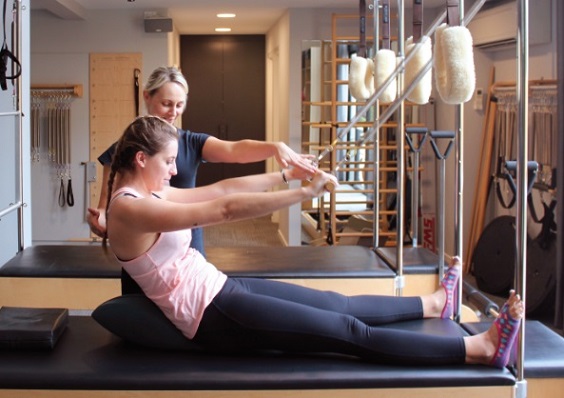Nikhil Prasad Fact checked by:Thailand Medical News Team Jan 13, 2025 3 months, 8 hours, 4 minutes ago
Medical News: The COVID-19 pandemic has left a lasting impact on millions, with many continuing to experience symptoms long after the acute phase of the illness. Among these lingering effects, muscle weakness, fatigue, and reduced physical functionality stand out as significant challenges. Women, in particular, face unique hurdles due to hormonal and social factors that exacerbate recovery difficulties. A recent study conducted in Turkey highlights the transformative role of an eight-week physiotherapy program in addressing these issues and restoring strength and vitality to women recovering from COVID-19. This
Medical News report delves into the study’s findings and explores the critical role physiotherapy plays in post-COVID-19 rehabilitation.
 Restoring Muscle Strength in Women After COVID-19 Through Physiotherapy
Study Background and Objectives
Restoring Muscle Strength in Women After COVID-19 Through Physiotherapy
Study Background and Objectives
Researchers from Kayseri University’s Incesu Ayşe and Saffet Arslan Health Services Vocational School and Kayseri City Hospital conducted the study. The primary goal was to evaluate the effectiveness of a tailored physiotherapy program in improving muscle strength, functional capacity, respiratory function, and quality of life in women aged 18 to 65 recovering from COVID-19.
The study enrolled 42 participants who reported persistent physical symptoms such as fatigue, muscle weakness, or difficulty performing daily activities. All participants underwent a personalized physiotherapy regimen, which included resistance training, respiratory therapy, and functional mobility exercises over eight weeks. Assessments were conducted at the beginning and end of the program to measure improvements.
Key Findings: The Transformative Power of Physiotherapy
The study’s results were striking, showcasing significant improvements across various metrics:
Muscle Strength:
-Right-hand grip strength increased from an average of 18.5 kg to 22.8 kg.
-Left-hand grip strength improved from 17.2 kg to 21.1 kg.
-Quadriceps and hamstring muscle strength also showed substantial gains.
Functional Capacity:
-Participants increased their average walking distance in the six-minute walk test from 382 meters to 438 meters.
-Performance in the sit-to-stand test improved from an average of 13.8 repetitions to 17.5 repetitions.
Respiratory Function:
-Forced vital capacity (FVC) increased from 2.6 liters to 3.0 liters.
-Forced expiratory volume in one second (FEV1) rose from 2.1 liters to 2.5 liters.
Quality of Life:
-Scores on the SF-36 questionnaire, which measures physical and mental well-being, showed marked improvement. Physical functioning scores rose from 55.3 to 68.9, while vitality scores improved from 47.1 to 62.3.
-Fatigue severity decr
eased significantly, with average scores on the Fatigue Severity Scale dropping from 5.4 to 3.2.
These outcomes underline the effectiveness of structured physiotherapy programs in addressing the multifaceted impacts of long COVID.
Gender-Specific Challenges and Solutions
Women recovering from COVID-19 often face unique challenges that extend beyond the physical. Hormonal changes, such as those associated with menopause, can accelerate muscle loss and delay recovery. Additionally, caregiving responsibilities may limit their ability to prioritize their own rehabilitation. This study emphasized the importance of tailoring physiotherapy interventions to meet women’s specific needs.
Strategies included:
-Flexible scheduling to accommodate caregiving roles.
-Exercises targeting muscle groups most affected by hormonal changes.
-Incorporating respiratory therapies to address long-term pulmonary effects of COVID-19.
Physiotherapy Protocols: A Comprehensive Approach
The physiotherapy program was meticulously designed to address both physical and respiratory limitations:
-Resistance Training: Focused on major muscle groups, including the quadriceps and hamstrings, using resistance bands, free weights, and body weight. Intensity was gradually increased to promote strength recovery.
-Functional Mobility Exercises: Included sit-to-stand training, step-ups, and balance exercises to enhance lower limb strength, coordination, and postural stability.
-Respiratory Therapy: Utilized techniques such as diaphragmatic breathing, incentive spirometry, and inspiratory muscle training to improve lung capacity and oxygenation.
-Flexibility and Posture Correction: Aimed to alleviate muscle stiffness and reduce the risk of musculoskeletal discomfort.
Conclusions: A Path to Recovery
The findings of this study demonstrate that physiotherapy is a cornerstone of post-COVID-19 recovery, offering significant improvements in muscle strength, functional capacity, respiratory health, and overall quality of life. While vaccination appears to enhance certain aspects of recovery, the benefits of physiotherapy are universal, making it an essential intervention for all COVID-19 survivors.
Physiotherapy not only addresses physical impairments but also fosters psychological well-being, empowering women to reclaim their independence and vitality. These findings highlight the need for integrating physiotherapy into comprehensive post-COVID-19 care strategies, with a particular focus on gender-sensitive approaches.
The study findings were published in the peer-reviewed Journal of Clinical Medicine.
https://www.mdpi.com/2077-0383/14/2/437
For the latest COVID-19, keep on logging to Thailand
Medical News.
Read Also:
https://www.thailandmedical.news/news/young-adults-face-decline-in-respiratory-function-lower-muscle-performance-and-poorer-physical-function-after-covid-19-exposure
https://www.thailandmedical.news/news/long-covid-effects-on-muscles-and-post-exertional-fatigue
https://www.thailandmedical.news/news/covid-19-diaphragm-weakness-persists-2-years-later-but-shows-improvement-with-muscle-training
https://www.thailandmedical.news/news/antibodies-elicited-by-inactivated-viral-vaccines-against-sars-cov-2-nsp3-found-to-also-target-host-muscle-and-neuroglial-cells
